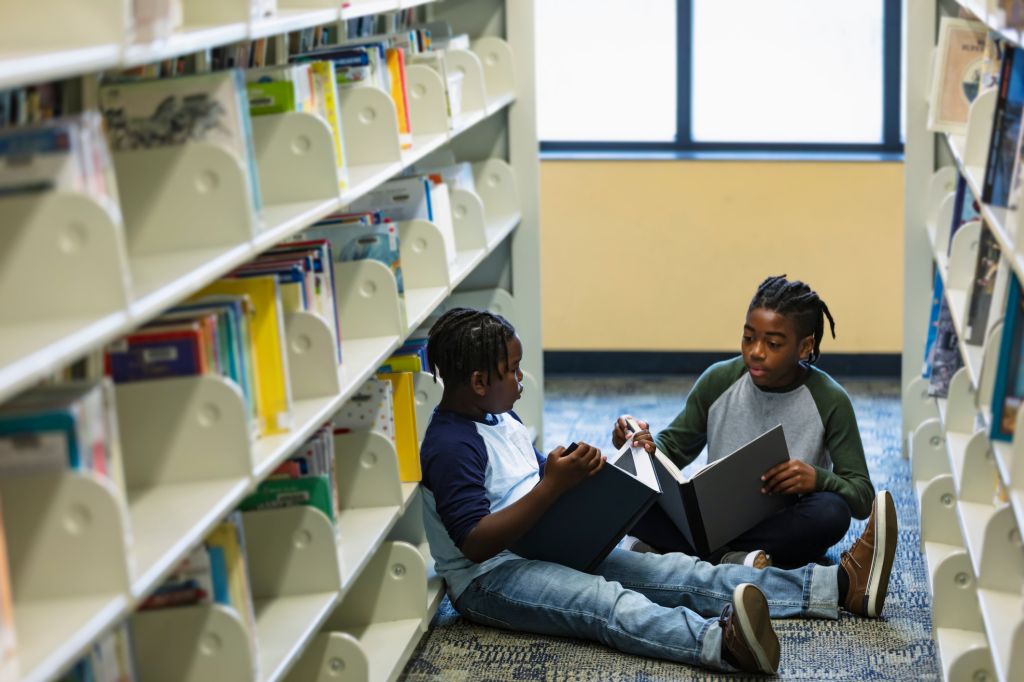DC State Board of Education Disbands Key Committee, Raising Concerns Over Transparency, Student Voice, and Education Equity

Source: ANDREW CABALLERO-REYNOLDS / Getty
Washington, D.C.—The D.C. State Board of Education’s College, Career, and Life Readiness Committee (CCLRC) is being disbanded, raising concerns about disruption to student outreach initiatives, academic standards discussions, and upcoming events like Civics Week.
The committee, which focused on policies related to graduation requirements, career readiness, and health education, met for the last time in a brief 20-minute session. During the meeting, members discussed the need to survey students on academic challenges and disparities in physical education resources.
Despite these ongoing discussions, the board has not provided a clear reason for the committee’s dissolution. Members will be reassigned to other committees, but uncertainty remains about how unfinished initiatives will be addressed.
The dissolution of the CCLR Committee raises broader concerns about governance and transparency in D.C.’s education system. Unlike traditional school boards with decision-making authority, the D.C. State Board of Education functions largely in an advisory capacity, with real policy control concentrated in the Office of the State Superintendent of Education (OSSE) and the mayor’s office. This structure has led to ongoing debates about whether the SBOE has enough influence to shape meaningful educational reforms.
The lack of a clear explanation for the committee’s disbanding adds to concerns about how much autonomy the SBOE has in directing policy.
If this decision is part of a broader restructuring, it could indicate a shift in priorities within the board or an effort to consolidate decision-making power under OSSE. Without transparency, it remains unclear whether the unfinished work of the committee—especially its focus on student input and education equity—will continue.
The D.C. State Board of Education (SBOE) works alongside the Office of the State Superintendent to shape education. It divides responsibilities among committees that focus on specific areas, such as college and career readiness. The CCLR Committee’s dissolution means its ongoing work will either transition to other committees or be abandoned.
Its final meeting, led by policy analyst Kathleen Coughlin, consisted of representatives Robert Henderson and Brandon Best, along with student representative Ryan Ting, who provided updates on key initiatives.
The agenda included discussions on graduation requirements, academic standards and planning Civics Week, a series of events designed to educate students about public service and constitutional democracy.
One committee’s priorities had been gathering student input on academic challenges, particularly regarding disparities in physical education and health curricula. Ting emphasized the importance of understanding whether students have access to the resources they need.
“Different schools have access to different resources, so is there an ability for school A to connect with school B to use their gym, or how are they compensating for the lack of resources?” Ting said. “Also, ‘Do you feel like what you’re learning in PE/Health is engaging or relevant?’ Like I’d rather learn how periods work than how dodgeball works, personally.”
Ting’s comments reflect a larger issue within D.C. Public Schools: disparities in resources between schools. In wealthier wards, students often have access to well-equipped gyms, updated curricula, and extensive extracurricular programs, while schools in lower-income areas struggle with outdated facilities and fewer resources. The CCLR Committee’s effort to survey students about these gaps was one way to elevate student voices in discussions about educational equity. With the committee’s dissolution, it remains unclear whether these concerns will be addressed in another capacity.
With the committee being dissolved, its members will transition to other groups. The SBOE’s bylaws outline only five standing committees, and additional task forces require approval through a board vote. It remains unclear why the CCLR Committee was disbanded or whether a similar body will take over its responsibilities.
The disruption left some members concerned about continuity, particularly regarding Civics Week, which is organized in collaboration with the District of Columbia Public Schools and the League of Women Voters. Best, who spearheads the planning, received reassurance from Henderson that efforts should continue despite the transition.
The committee’s role in planning Civics Week also highlights a broader conversation about the role of civics education in American schools. Nationwide, debates over how students learn about democracy, government, and activism have intensified. Some states have moved to restrict discussions on voting rights, race, and history in classrooms, while others have expanded civics education programs to encourage student engagement.
In D.C., where students are uniquely positioned at the heart of national policy debates but lack full congressional representation, Civics Week serves as a crucial opportunity to teach young people about their role in democracy. The uncertainty surrounding its coordination raises questions about how the SBOE will ensure continuity in student engagement efforts, particularly as education policy decisions continue to be shaped by mayoral control rather than an elected school board.
The SBOE has yet to explain why the CCLR Committee was dissolved or what will happen to the policy issues it was addressing. While committee members will be reassigned, it remains unclear how student engagement efforts, academic standards discussions, and the planned student survey will be handled.
D.C.’s education system continues to face questions about transparency and governance, particularly regarding how decisions like this are made and whether they reflect the needs of students, teachers, and parents. As the board moves forward, education advocates and students alike will be watching to see whether the priorities of the dissolved committee are taken up elsewhere—or if they fade from the agenda entirely.
While SBOE committee meetings are open to the public, the board does not allow participation in discussions. According to SBOE’s guidelines, “individuals and representatives of organizations are not permitted to speak or participate” during committee sessions.
SEE ALSO:
RIP Kiah Duggins: Aspiring Howard Law Professor Identified As D.C. Plane Crash Victim
Racial Equity In Education: Howard University Debate Team Addresses Erasing Black Critical Race Theory


Post a Comment
0 Comments